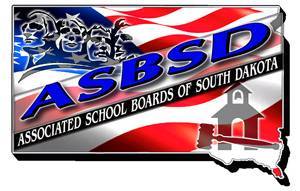House Education committee members deferred four K-12 related funding bills to the House Appropriations committee on Wednesday, which marked the committee’s last time discussing bills.
SPED levy bill discussed
Committee members unanimously voted to defer Senate Bill 15, which adjusts property tax levies for the special education fund of a school district and allows the use of 15 percent of special education fund dollars for special services, to appropriations.
SB 15 proposes the tax levy for special education be raised by $0.15, with the maximum level set at $1.552 per thousand dollars of taxable valuation and the state aid qualifying level at $1.352.
The levies are being raised to account for an increase in SPED students and the flattened land valuations. A state-to-local effort ratio would be set at approximately 39-61 percent, which DOE Finance Director Tammy Darnall said had been about the average ratio since 2008.
“We need to set a path and follow it to help the formula be sustainable,” Darnall said.
Darnall noted the tax levy ratio for special education hadn’t been “followed very closely” by the state in recent years and going forward it would be set annually, resembling the general education formula.
SB 15 also allows school districts to use up to 15 percent of their special education fund dollars to identify K-12 students who need additional academic and behavioral interventions and caps the Extraordinary Cost Fund at $5.5 million.
ASBSD is monitoring the bill.
ESL funding adjustment supported
Senate Bill 159, which provides school districts with increased state aid for each Limited English Proficiency student, was referred on a 15-0 vote by committee members.
“This (funding shortfall) is a problem. It’s a real problem with a great solution,” Executive Director Wade Pogany testified. “(SB 159) will impact every one of your districts.”
Initially the bill provided a 25 percent increase in state aid, but an amendment was introduced and passed that lowered the increase to 1 percent. The decrease is considered temporary until legislators have a better idea of available funding towards the end of session.
Rep. Mark Mickelson (13) said the 25 percent increase requested “is less than the actual cost” needed. Rep. Mickelson said a 25 percent increase would provide approximately $1,100 per ESL student.
ASBSD supports the bill.
Proposed scholarship program sent on
On a 12-3 vote, committee members referred Sen. Tim Rave’s (25) bill to establish a critical needs teaching scholarship.
Currently, Senate Bill 233, which creates a trust fund program for student’s entering the teaching profession in a critical needs curriculum area and staying in the state after completing their degree, has $1 attached to it.
Sen. Rave has requested $5 million in one-time dollars from the general fund to start the scholarship’s trust fund, which would supply 11-15 scholarships each year.
ASBSD is monitoring the bill.
Vehicle bill amended before referral
Committee members hoghoused Senate Bill 138 – a vehicle bill for K-12 education – and referred it on a 14-1 vote.
The amended version of SB 138 now simply is “an act to enhance education.” The previous version of the bill revised certain provisions regarding educational data reporting.
ASBSD is monitoring the bill.
For updates on the progress, or lack thereof, in House Appropriations, check the ASBSD blog and bill tracker.
